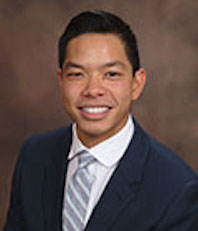John Pang Manuscript on Chronic Opioid Use in Oral Cancer Surgical Patients named 2017 Best Resident Clinical Paper by American Head & Neck Society

May 1, 2017
Opioid abuse, addiction, and death has become a public health epidemic. In the United States, the death rate from prescription opioid overuse quadrupled between 2000 and 2014—increasing from 1.5 to 5.9 deaths per 100,000.
 UC San Diego surgery resident John Pang and his co-authors set out to learn more about chronic opioid use and death as it relates to one particular area: patients with oral cavity cancer who undergo surgery.
UC San Diego surgery resident John Pang and his co-authors set out to learn more about chronic opioid use and death as it relates to one particular area: patients with oral cavity cancer who undergo surgery.
Opioids are often dispensed by physicians as a solution to chronic pain, including chronic pain associated with cancer surgery. Strikingly, the increase in death rate parallels a 4-fold increase in the quantity of drugs dispensed over the same period that the death rate increased (2000-2014). Understanding the prevalence of chronic opioid use after surgery, and the factors that influence risk of abuse, is critical.
“Our group realized that the prevalence of chronic opioid use in our patients who undergo oral cavity surgery for cancer is unknown," says Dr. Pang, lead author of the study. “It’s important to be able to educate patients about the realities of post-surgical pain and to set realistic pain management goals.”
In the study, factors associated with chronic opioid use—defined as use beyond 90 days after surgery— were investigated among 99 patients with oral cavity cancer between January 1, 2011, and September 30, 2016.
Findings showed that among patients undergoing surgery for oral cavity tumors, the prevalence of chronic opioid use was considerable at 41%. Preoperative opioid use, tobacco use, and development of persistence, recurrence, or a second primary tumor were associated with chronic opioid use after surgery, and both preoperative and chronic opioid use were associated with decreased survival.
Pang, who previously studied at Johns Hopkins University and is in his third year of residency at UCSD, says: “For the majority of patients, long-term use is a non-issue. But our data suggests that patients who recur, who were previous smokers, or those who were on opioids before surgery should be targeted with pain management strategies. Future research projects are under way to study the prevalence for other types of cancer surgery.”
